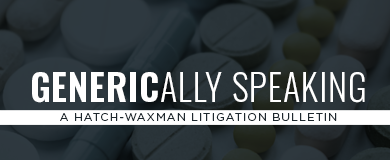- Acumen Powered by Robins Kaplan LLP®
- Affirmative Recovery
- American Indian Law and Policy
- Antitrust and Trade Regulation
- Appellate Advocacy and Guidance
- Business Litigation
- Civil Rights and Police Misconduct
- Class Action Litigation
- Commercial/Project Finance and Real Estate
- Corporate Governance and Special Situations
- Corporate Restructuring and Bankruptcy
- Domestic and International Arbitration
- Entertainment and Media Litigation
- Health Care Litigation
- Insurance and Catastrophic Loss
- Intellectual Property and Technology Litigation
- Mass Tort Attorneys
- Medical Malpractice Attorneys
- Personal Injury Attorneys
- Telecommunications Litigation and Arbitration
- Wealth Planning, Administration, and Fiduciary Disputes
Acumen Powered by Robins Kaplan LLP®
Ediscovery, Applied Science and Economics, and Litigation Support Solutions
-
April 23, 2024David Martinez Recognized Among Top 100 Lawyers in Los Angeles by LA Business Journal
-
April 15, 2024Robins Kaplan Named to 2024 BTI Client Service A-Team
-
April 9, 2024Robins Kaplan LLP Files Complaint Against Social Media Giants Meta, Snap, TikTok on Behalf of Spirit Lake Nation, Menominee Indian Tribe of Wisconsin
-
April 24, 2024IP Leadership Executive Summit
-
April 24, 2024IP Odyssey: Navigating the Latest Developments in Intellectual Property Law
-
April 30, 2024Navigating Generational Dynamics
-
March 2024e-Commerce: Pitfalls and Protections
-
March 22, 2024‘In re Cellect’:
-
March 14, 2024How Many Cases Have You Tried to a Verdict?
-
September 16, 2022Uber Company Systems Compromised by Widespread Cyber Hack
-
September 15, 2022US Averts Rail Workers Strike With Last-Minute Tentative Deal
-
September 14, 2022Hotter-Than-Expected August Inflation Prompts Massive Wall Street Selloff
Find additional firm contact information for press inquiries.
Find resources to help navigate legal and business complexities.
Pharmacyclics LLC v. Alvogen Pine Brook LLC
Imbruvica® (ibrutinib)
August 19, 2021

Case Name: Pharmacyclics LLC v. Alvogen Pine Brook LLC, No. 19-0434, 2021 WL 3680317 (D. Del. Aug. 19, 2021) (Connolly, J.)
Drug Product and Patent(s)-in-Suit: Imbruvica® (ibrutinib); U.S. Patents Nos. 8,008,309 (“the ’309 patent”), 8,754,090 (“the ’090 patent”), 9,655,857 (“the ’857 patent”), 9,725,455 (“the ’455 patent”)
Nature of the Case and Issue(s) Presented: Imbruvica tablets are indicated for the treatment of patients with small cell lymphoma in adults. The active ingredient—ibrutinib—disrupts the protein known as Bruton’s tyrosine kinase (“BTK”), which is believed to play a role in unregulated cell reproduction. The ’309 patent is directed to the ibrutinib molecule. The ’090 patent generally claims methods of treating small cell lymphoma. The ’455 patent claims a crystalline form of ibrutinib. The ’857 patent is directed to formulations of tablets containing ibrutinib. Alvogen argued that the asserted claims of the patents-in-suit were invalid. The district court found that Alvogen did not meet its burden of proof in showing that the patents-in-suit were invalid.
Why Pharmacyclics Prevailed: First, Alvogen argued that the ’309 patent was invalid as anticipated. In particular, Alvogen argued that the ’309 patent was not entitled to its claim of priority, thereby making the Pan reference prior art. But the court found that the provisional applications disclosed ibrutinib’s structure in Table 1 and that a skilled artisan would have been able to synthesize ibrutinib based on the disclosure in the applications. For those reasons, the ’309 patent was entitled to its claim of priority, and Pan was not prior art.
Next, Alvogen argued that the ’090 patent lacked written description, was not enabled, was obvious, and was invalid for obviousness-type double patenting (“OTDP”). The court found that Example 13 provides a protocol to evaluate the efficacy of treating mantle cell lymphoma with a BTK inhibitor that was ibrutinib, meaning that the patent was both described and enabled. As to obviousness, Alvogen failed to demonstrate that one of skill would have been motivated, with a reasonable expectation of success, to combine the prior art to achieve the claimed method of treating mantle cell lymphoma with 560 mg of ibrutinib. For OTDP, the court found that the prior art reference did not disclose a numerical dosage amount or range, and thus the claims were patentably distinct.
Alvogen then argued that the ’455 patent was inherently anticipated and invalid as obvious. In particular, Alvogen argued that two references—Pollyea and Fowler—anticipate because every lot of PCI-32765 used in the Phase I study was crystalline Form A of ibrutinib. But the court found that Alvogen had not proved that the Phase I dose escalation study described in Pollyea and Fowler could only be conducted with crystalline Form A of ibrutinib. Because the study could have been performed with amorphous ibrutinib or one of its metastable polymorphs, the ’455 patent was not invalid as anticipated or obvious.
Finally, Alvogen argued that the ’857 patent was invalid as obvious and for lacking an adequate written description. As to written description, Alvogen argued that the claims described the ingredient amounts by their relative weight concentration, whereas the specification described examples of tablets with fixed dosage amounts of 140 mg and 560 mg. Alvogen’s argument failed, however, because the specification also noted that a skilled artisan could vary the amount of ingredients in the tablets as long as the relative weight concentrations were kept the same. As for obviousness, the court found that Alvogen failed to demonstrate that one of skill would have been motivated, with a reasonable expectation of success, to combine the claimed ingredients in their respective amounts.
Related Publications
Related News
If you are interested in having us represent you, you should call us so we can determine whether the matter is one for which we are willing or able to accept professional responsibility. We will not make this determination by e-mail communication. The telephone numbers and addresses for our offices are listed on this page. We reserve the right to decline any representation. We may be required to decline representation if it would create a conflict of interest with our other clients.
By accepting these terms, you are confirming that you have read and understood this important notice.
